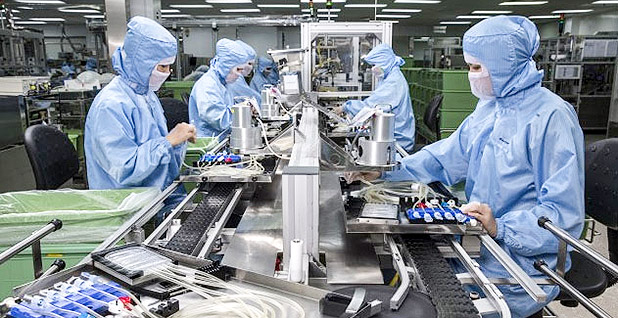Though coronavirus has only begun to show up in America, it’s already exposed the nation’s serious over-reliance on China for pharmaceutical production. As Washington looks to address that, it should consider killing two birds with one stone by using the issue as a chance to give Puerto Rico a leg up.
After all, the island was for decades a central hub of US drug manufacturing. It would do the commonwealth and the mainland a world of good to restore that preeminence. About 90 percent of the active ingredients (manufactured “precursors”) used by US drugmakers now come from China. With that country’s factories largely shut down by the outbreak, America’s pharmaceutical supplies are at risk even as the virus hits here. The Food and Drug Administration fears a shortage of widely used generic drugs.Moving to ensure some domestic capacity for future crises is a no-brainer. And boosting Puerto Rico, now struggling with a debt crisis plus hurricane and earthquake damage, should be one, too.
In the 1970s, Congress passed tax breaks for companies that set up shop in Puerto Rico. Drugmakers took advantage and soon made the island one of the world’s top pharma-production centers.
But President Bill Clinton signed a law to start phasing out the tax breaks in the 1990s. Once they expired fully in 2006, the industry began a major pullout from the island.
“Not coincidentally,” the Tax Foundation noted in 2015, “2006 marked the beginning of a deep recession for Puerto Rico, which has lasted until today.” That killed tax revenues and led to under-investment in infrastructure, such as the electric grid — which collapsed when Hurricane Maria hit.
Though we generally oppose these kinds of targeted tax breaks, there’s a clear need for a national-security exception here. And Puerto Rico, which suffers from other mainland laws like Jones Act shipping restrictions, deserves offsetting support.
About $70 billion in debt, with no real way to pay it back, Puerto Rico may be on the brink of declaring a second bankruptcy (the first came in 2017) if it can’t finalize a deal with bondholders to trim its public debt 70 percent.
Restoring the Puerto Rican tax break for pharma production would boost America’s security and give a hand to an island of more than 3 million US citizens. How about it, Washington?

COMMENTS